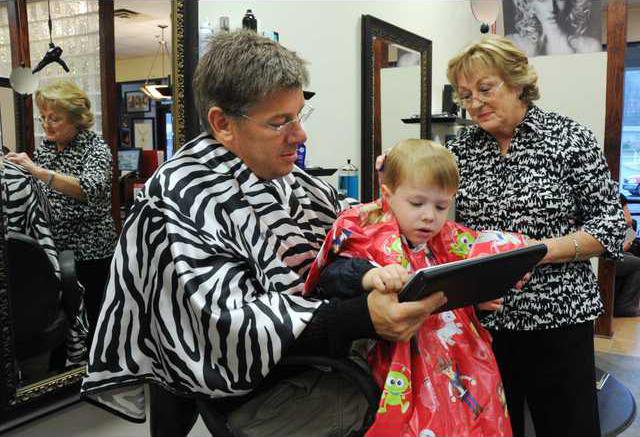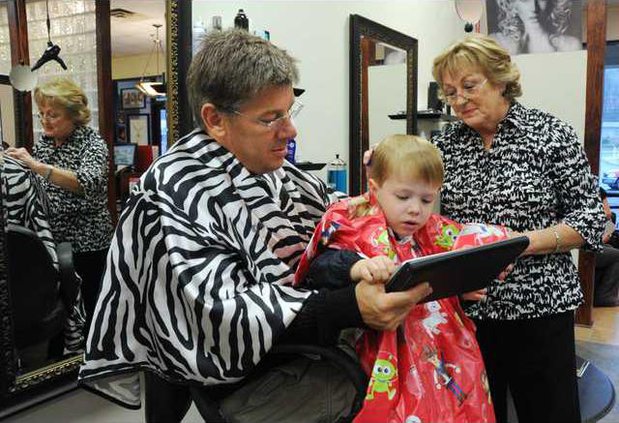List of services
Clothing services: shoe repair, alterations, watch or jewelry repair
Household services: garbage pickup, septic tank cleaning, water softening
Household contracts: housekeeping, lawn care, home security systems, electronics installation
Membership fees: golf courses, country clubs, credit card membership, online dating services and other social organizations such as health clubs, swimming pools and fitness centers
Vehicle maintenance: oil changes, car battery installation, tires, brakes, transmission work, audio and video equipment, body work, exhaust and electrical system work, engine repair, auto service clubs, towing charges
Others: moving expenses, laundry and dry cleaners, veterinary expenses, haircuts and styling, book and music downloads
A taxing change
This article is the second in our weeklong series outlining possible tax changes.
Sunday: Lawmakers work to shift tax burden to consumers
Leaders in the House introduced legislation at the end of February and formed a committee with Senate leaders to tackle the overwhelming changes that would move Georgia from income-based taxes to sales taxes.
Monday: Legislation could mean higher cell phone, cable bills
One feature would place a new 7 percent tax on all communications services, with 4 percent going to the state and 3 percent back to local governments. It would earn the state between $190 million and $200 million in new revenue annually, according to bill supporters.
Tuesday: Georgia may put a 4 percent sales tax on groceries
The bill would eliminate the 4 percent state sales tax exemption for groceries, which are currently taxed at 3 percent by local governments.
Today: In an effort to move away from income taxes, the overhaul would place the burden on consumer services by taxing things like haircuts, veterinary services and lawn care for the first time.
Thursday: The bill could eliminate income exemptions for senior citizens.
Friday: Gas would go up by 6 cents per gallon under the bill.
Saturday: Cigarette taxes would almost double, moving from 37 cents to 68 cents per pack.
Carolyn Adams thinks a change in Georgia's taxes could work in the long run.
The owner of Hair Artistry on South Enota Avenue already pays income taxes, payroll taxes and taxes on her hair products, but she sees the logic behind moving to consumption-based taxes.
"It would be a huge shock in the beginning because there would be this across-the-board change," she said. "Honestly, some people might not get their hair done as often, but then it would level out and could be positive."
As part of its efforts to overhaul Georgia's antiquated tax code, the Special Council on Tax Reform and Fairness for Georgians recommended the state begin collecting a 4 percent sales tax on about 50 personal services for the first time, including haircuts, auto repairs and membership fees.
The proposal would move the state from income-based taxes to sales taxes over the next few years.
Legislators hope the changes will makes Georgia more attractive to businesses.
"It has to be revenue-neutral. This cannot be a tax increase on taxpayers," said Majority House Leader Larry O'Neal, one of the co-sponsors for the bill under consideration by a joint committee of Senate and House leaders.
"We need sustainable and reliable data about the revenue difference and what it will mean for the coffers of Georgia," he said. "It's easy to take each item and lose sight of the entirety of the change. We're not about just putting a tax on groceries or your puppy going to the vet, but when you put it together, is it the best thing for Georgia?"
The Special Joint Committee on Georgia Revenue Structure is now gathering expert opinions and data to determine how a tax on services could impact consumers and business owners.
"Any change in the beginning is uncertain and unknown, and when you're depending on someone to walk through your door to support a family and pay bills, that's scary," Adams said. "But if we have time to prepare and plan and maybe have an incentive to bridge the gap, it could work just fine."
Business owners will need to see the numbers and logic behind the bill as changes are made.
"It becomes emotional if you don't understand the changes and get hit with a large book of new tax code, but if you can reason it out to me, it becomes fair," she said. "Another concern is when you make radical changes, it could go under the table, I'll do your hair if you fix my car. We don't want to scare people so much that they go under the table."
The state's problem, according to tax council members, is that services have become a larger portion of Georgia's economy over the years. That shift means more of the tax burden is placed on businesses that sell goods, and the state's revenue base isn't broad enough, the council concluded in its January report to legislators.
"Services are the largest-growing part of the consumption base, and we thought it would be better to broaden the base rather than raise the rates," said David Sjoquist, an economics professor at Georgia State University and tax council member. "A large sales tax base with lower rates is better. Other states tax these services, so it's not anything new across the country, just new for Georgia."
The council did not want to tax businesses that could leave the state. Most consumer services have to be where the consumers are, such as pest control, garbage pickup and dry cleaning fees.
"If you look at the list of services that we recommended for this change, they are already taxed in 20 other states, and the burden would not be onerous," said Roger Tutterow, an economics professor at Mercer University and tax council member. "Some businesses already collect sales taxes on the parts or products they use but not the related services, so the administrative burden should be relatively diminished."
The cost to consumers would not be insignificant.
The addition of a 4 percent sales tax on services is expected to generate $298 million in new revenue for the state, and local governments would likely add another 3 percent.
"I'm opposed to new taxes by themselves, but if this would help eliminate income taxes, I'm in favor of it," said Gainesville resident Jim Lee, who visited Hair Artistry on Tuesday with his son, Robby. "It would enable the state to tax everybody who uses services, even if they don't live in the state, and some people in the community use goods but don't pay an income tax."
It would help distribute the tax burden, noted Frances Mathis, who also visited a hair stylist and manicurist Tuesday.
"This change wouldn't affect me much, but I think it would help across the community," she said.

